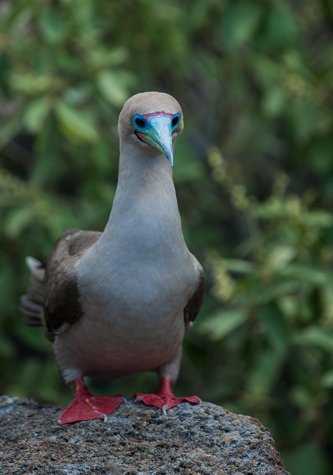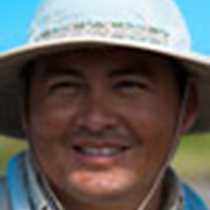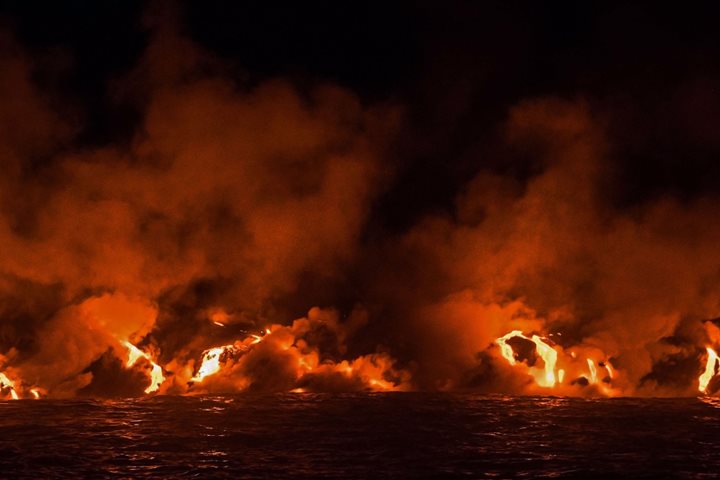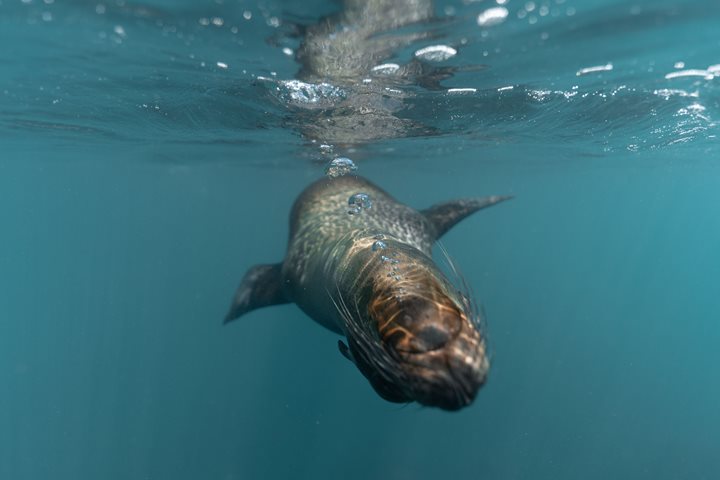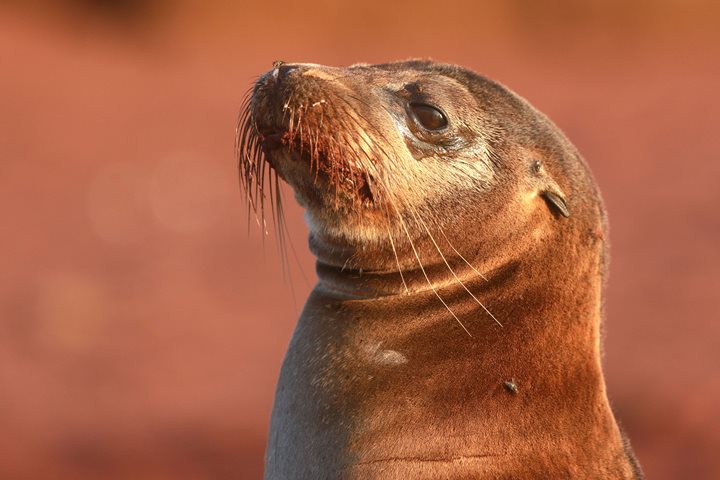While we entered the collapsed caldera of Genovesa island, we were overwhelmed by birds heading to their fishing grounds. This gave us a great idea of what was waiting for us.
The early risers enjoyed this wonderful and challenging approach to Darwin bay, while the rest were preparing for their first outing of the morning. The kayaking took place along the cliff where dozens of different birds were sighted. Later we set foot on Darwin’s beach. Swallowtail gulls and red-footed boobies were the first species found on that peaceful place. Our excursion took us a little further and we happened upon he breathtaking frigate birds displaying their gular pouches to the females that were hovering over them. Sharp-beak finches, also known as “vampires”, and mockingbird where found in the saltbushes. Afterward we headed back to the National geographic Islander and prepared for a second outing of deep water snorkeling. The underwater realm astonished us with a wide variety of fish. For example, parrotfish, wrasse, indo pacific bonito, Moorish idol and a few more species of fish from the indo pacific where spotted in the calm, warm water of Darwin Bay.
The afternoon outing was very pleasant. We walked through a palo santo and yellow cordia forest. We spotted the only species of booby that build its nests in trees, the “red-footed boobies”. While in the forest we saw a female large ground finch feeding her chicks that thrived in their nest. At the end of the forest we found an unblemished area with a picturesque volcanic landscape.
The volcanic flows with lots of crevices and small lava tubes are perfect places for storm petrels to nest. We were enjoying the astonishing volcanic landscape when a short-eared owl flew above us. This raptor has diurnal behavior on Genovesa Island because of the availability of food. After so much fun on our outing, we took a minute of silence for those species that are now extinct. It made us think about how small we are on this planet and how the wildlife in Galapagos battled to reach these oceanic islands and establish themselves in a wild, new environment.

